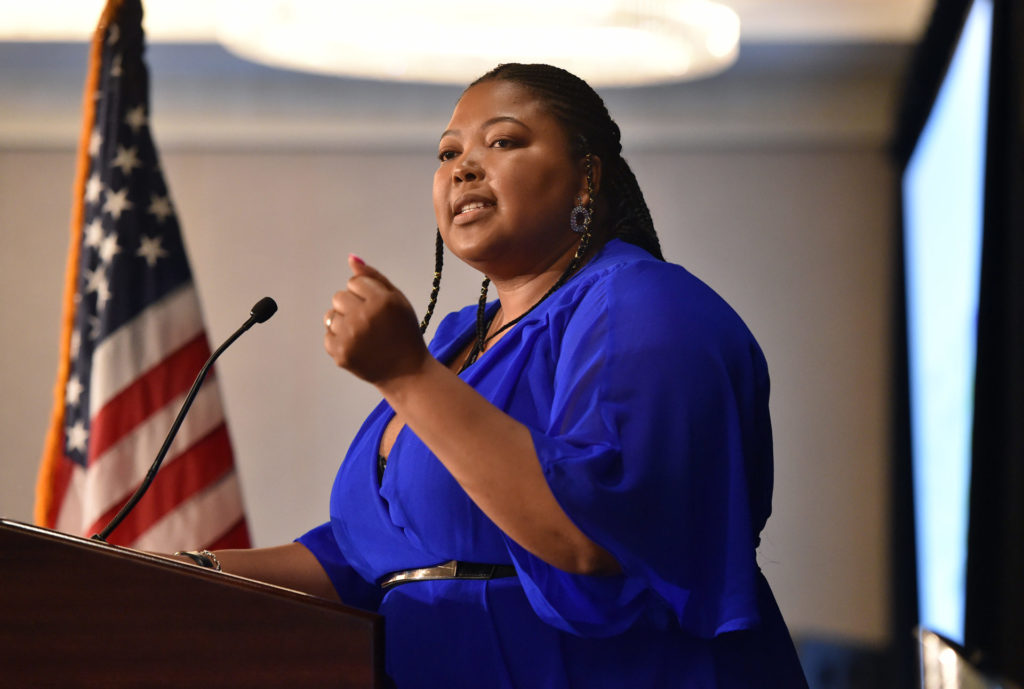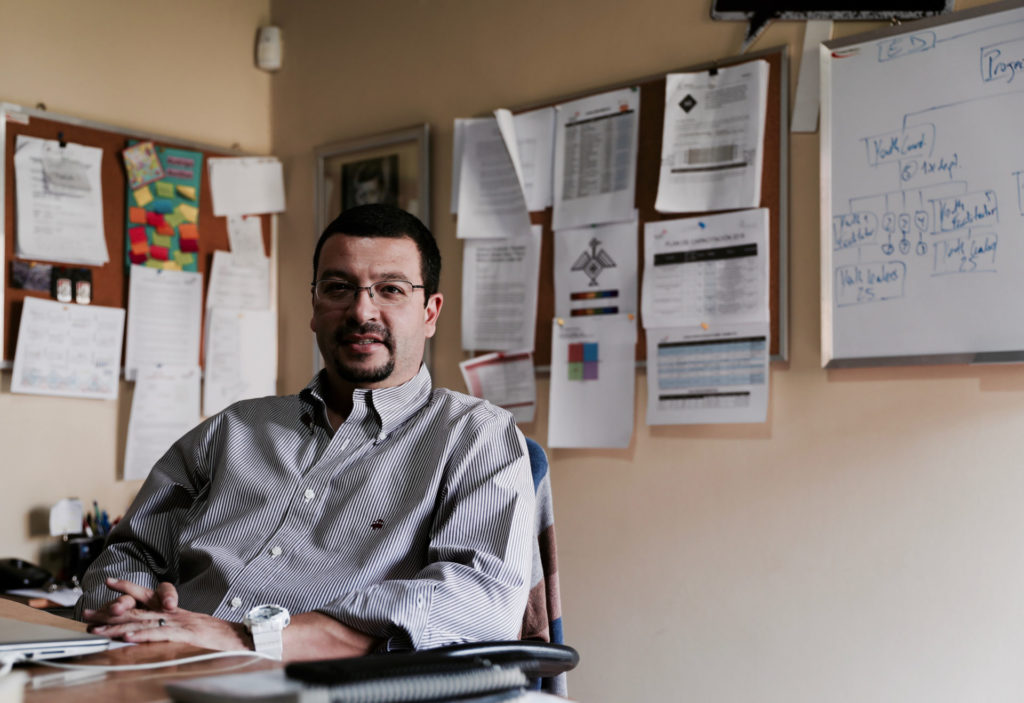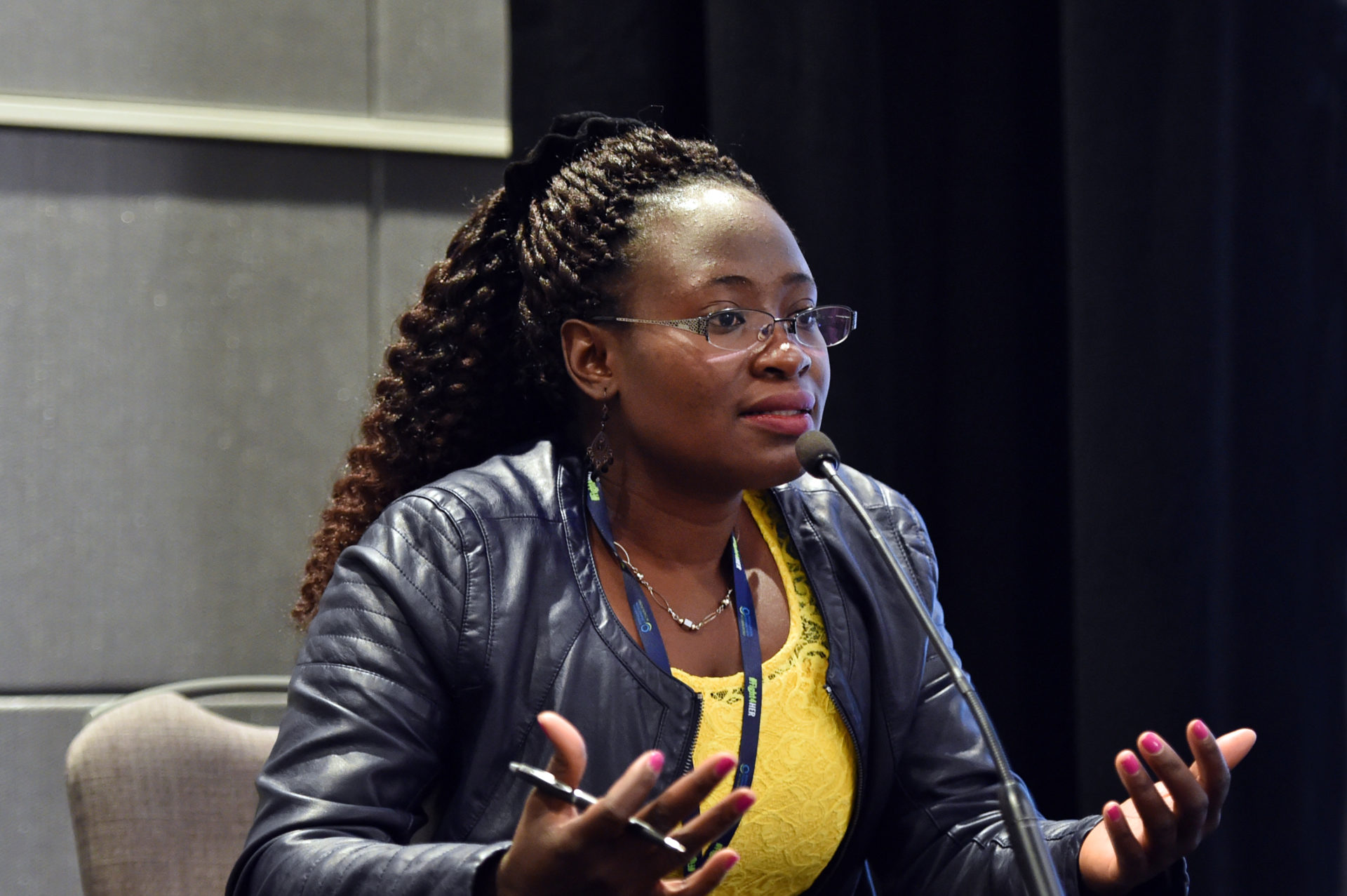Trump Left International Abortion Rights in Shambles, Activists Say. Can Biden Undo the Damage?
Written by By Urooba Jamal | Published: March 15, 2021
Originally published by The Lily, a product of The Washington Post, on January 19, 2021
Biden vowed to repeal the Global Gag Rule, but Trump’s “anti-woman rhetoric” isn’t necessarily going away.
In 2019, Melvine Ouyo, a health policy expert and reproductive rights activist, attended a conference in her city of Nairobi, where antiabortion campaigners were protesting the event. Shortly after that, Ouyo said, she met a pregnant 14-year-old girl who had no information about how she could access a safe abortion if she chose.
Ouyo said she believes that if the Trump administration’s Global Gag Rule—a U.S. foreign aid policy that restricts funding for abortion-related services—had not been in place, the campaigners wouldn’t have had such a prominent platform, and the girl would have had more information about her reproductive health options.
“The country has recorded a high number of teenage pregnancies,” Ouyo said of the last few years. She added that this increase, coupled with restrictions on abortion funding, has forced more girls in Kenya to drop out of school or seek unsafe abortion options, sometimes leading to deaths. “And this has been worsened by the current pandemic situation,” she said.
While abortion access was widened in Kenya in 2010, it largely remains illegal, and many low-income women and girls cannot afford it at private facilities where it is more easily available. About 2,600 women and girls die each year in Kenya as a result of unsafe abortions, higher than the global average.
In the last four years, clinics in the country have lost crucial funding, forcing many to shut down or offer fewer services. Advocates say that is the impact worldwide—not just in Kenya—of the Global Gag Rule. The Reagan-era policy has forced organizations to choose between forgoing providing abortion-related services or losing U.S. aid vital to their existence.
And while every Republican president since Reagan implemented the Global Gag Rule, Trump’s expansion was unprecedented: It went from applying to only family planning funding, amounting to around $600 million a year, to affecting all U.S. foreign aid—about $9 billion a year. This has impacted funding for health programs aimed at combating everything from HIV to malaria.
“As a front-line provider, as an activist on the ground, the Global Gag Rule has really had devastating impacts,” said Ouyo, who formerly worked for the family planning [organization] Family Health Options Kenya. “It was not easy for individuals, organizations, as well as even the government, to contain the kind of impact that has been felt on the ground.”

President-elect Joe Biden has promised to repeal the Global Gag Rule as one of his first acts in office. He is also slated to undo other Trump-era policies, including restoring funding to the United Nations Population Fund (UNFPA), the world’s largest provider of reproductive health care, as well as repealing the Helms Amendment, which restricts U.S. foreign aid for abortion. Abortion rights advocates on the ground are hopeful about these changes—even though they say they’re still reeling from the effects of Trump’s policies.
“There’s just been enormous damage done to global health infrastructure around the world when the biggest donor puts these kinds of restrictions,” said Brian Dixon of the progressive advocacy group Population Connection Action Fund (PCAF).
Dixon explained that other countries have tried to step in to fill some of the United States’ funding gaps, but they have been unable to match the losses as a result of Trump’s policies.
According to Riva Eskinazi, director of strategic partnerships and development at the International Planned Parenthood Federation (IPPF), the organization “lost about $100 million in global health assistance from the U.S. over the four years of the Trump administration, in over 32 countries in Latin America, sub-Saharan Africa, and South Asia.”
Last year, the U.S. government’s watchdog agency found that there was $12 billion in gagged funds across 1,300 global health grants in more than 70 countries. And on the ground, the policies have been potentially deadly: A 2019 report from the International Women’s Health Coalition found that the Global Gag Rule is “killing women worldwide.”
Ouyo has also had the opportunity to see the impact in other parts of Africa, including Uganda and Tanzania, where she said the situation is just as dire.

In South Africa, for example, despite abortion being legal, the Global Gag Rule has still managed to have an effect.
“For us in South Africa, the impact of the global gag was already felt with George W. Bush’s presidency,” said Tlaleng Mofokeng, a physician and the United Nations Special Rapporteur on the right to health. She explained that at that time the HIV crisis was at its peak in South Africa, and organizations battling it largely relied on U.S. aid. In turn, if family planning organizations refused to sign on to the Global Gag Rule, their STI prevention services were undermined as a result of the loss of U.S. funding.
In other words, she said, Trump’s expansion of the gag rule happened “in a fractured system. And that’s why it was challenging and more catastrophic.”
Specifically, Mofokeng said, Trump’s expanded policies have led to health data and research gaps, as well as added to the stigma around abortion. Because women’s rights organizations also receive U.S. aid, she said, the lack of funding has also contributed to re-victimizing women who face sexual or physical violence.
“All of these failures are enabled by the global gag because the same government that is in charge of providing safe abortion is the same government that outsources [their work to] NGOs,” she said. These nonprofit groups are supported by foreign aid to implement these programs, and must sign on to the Global Gag Rule to access any U.S. funding in the first place, she added.

In regions like Latin America—where, for the most part, abortion is very restrict[ed]—the Global Gag Rule and related policies have also had negative impacts that are not as widely discussed, according to activists.
In 2017, a Dutch abortion rights nonprofit, Women on Waves, attempted to land on the shores of Guatemala, where abortion is illegal except to save a [pregnant person’s] life. Guatemala’s army blocked their entry; the workers had arrived to administer abortions to Guatemalan women by taking them to international waters, where local laws do not apply. They would have given doses of mifepristone and misoprostol, drugs that induce abortions.
Misoprostol also helps stop postpartum hemorrhages. However, because of its associated use with abortion, it was unable to be used for that purpose in Guatemala shortly after Trump’s expansion of the Global Gag Rule.
“In a country where maternal mortality is still high, [this] was a huge impact for the country,” said Rodrigo Barillas, executive director of WINGS Guatemala, a reproductive rights nonprofit organization.
Barillas explained that in recent years, highly educated staff in clinics across the country have been laid off because of funding cuts, and pregnancies of girls and teens in the country—usually as a result of rape—have continued to soar.
Across the world in South Asia, staggered access to abortion services has been made worse because of Trump’s policies, according to Deepesh Gupta, who is in charge of nine countries in the subcontinent as senior technical adviser for [IPPF].
“Advocates were already struggling to do this sort of work,” he said, adding that it was surprising the gag rule impacted countries where abortion is legal, for similar reasons as in South Africa.
“We were not allowed to use of any kind of funding, even if we [just used the word] abortion,” he said.
Kalpana Apte, secretary general of the Family Planning Association of India, has seen firsthand its impact in India. In an email statement to The Lily, she said that in addition to reduced material resources, it also impacted mindsets around abortion, adding to its stigma.
Advocates say the far-reaching consequences of these policies may persist even after Biden’s inauguration.
“Trump’s anti-woman rhetoric and legacy will certainly continue in some countries like Brazil, or Egypt or Indonesia,” said Eskinazi, of [IPPF]. “So that’s another piece that we have to watch very closely … the [antiabortion] opposition which has been so well-funded globally through the U.S.”
In Guatemala, Barillas has witnessed something similar with the recent vote to legalize abortion in Argentina: Although the pro-choice movement in Guatemala was emboldened by the win and celebrated the news, the far-right opposition has also become more staunch in its stance, he said.
Many advocates are in unanimous agreement, however, that Trump’s departure is a welcome shift for international reproductive rights.
Both IPPF and PCAF are working toward permanent repeal of the Global Gag Rule, advocating for this to happen through the Global Health, Empowerment, and Rights (HER) Act. In July 2020, Democrats in the U.S. House also introduced the Abortion is Health Care Everywhere Act to repeal the Helms Amendment. With a Democrat-controlled Congress and presidency, advocates are hopeful substantive change could be coming.
Dixon said the time is ripe to take these issues outside the realm of “partisan football,” with Democrats like Biden promising to repeal the rule and Republicans promising to reinstall it.
“Another president is going to be elected someday; it might be a conservative, and we want to make sure they can’t just reimpose the gag rule again,” he said.
Media Hits
We were in touch with many media outlets leading up to and in the wake of President Biden’s repeal of the Global Gag Rule. We were successful in connecting several of our international partners—Melvine Ouyo, Dr. Rodrigo Barillas, and Dr. Tlaleng Mofokeng—with journalists who wanted to speak with health care providers impacted by the last administration’s expanded Global Gag Rule. And speaking on behalf of Population Connection Action Fund, Brian Dixon, our Senior Vice President for Media and Government Relations, and Stacie Murphy, our Director of Congressional Relations, were interviewed by several reporters as well.
We are sharing two of the articles that heavily quoted our partners in this issue of our magazine. The one on this page was published in the days before President Biden rescinded the Global Gag Rule. The other feature article in this issue was written in the days following Biden’s repeal of the heinous policy.
We are proud that we were able to contribute to the conversation around this welcome and necessary policy reversal, and we look forward to working with the Biden administration in the years to come to expand access to voluntary family planning to everyone, everywhere.
Below is a list of media outlets that published articles featuring us and/or our partners about Biden rescinding the Global Gag Rule:
- CNN
- Devex
- elDiario.es
- Politico (two articles)
- The Independent
- The Lily

